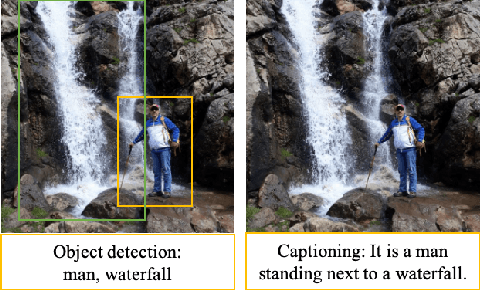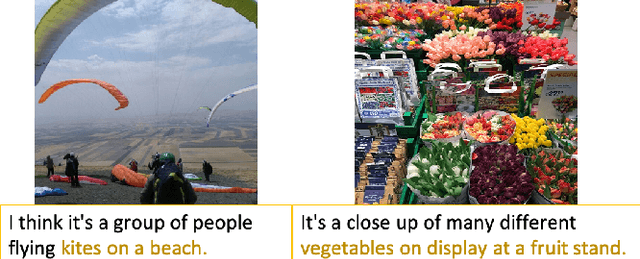An Integrated Approach for Video Captioning and Applications
Paper and Code
Jan 23, 2022



Physical computing infrastructure, data gathering, and algorithms have recently had significant advances to extract information from images and videos. The growth has been especially outstanding in image captioning and video captioning. However, most of the advancements in video captioning still take place in short videos. In this research, we caption longer videos only by using the keyframes, which are a small subset of the total video frames. Instead of processing thousands of frames, only a few frames are processed depending on the number of keyframes. There is a trade-off between the computation of many frames and the speed of the captioning process. The approach in this research is to allow the user to specify the trade-off between execution time and accuracy. In addition, we argue that linking images, videos, and natural language offers many practical benefits and immediate practical applications. From the modeling perspective, instead of designing and staging explicit algorithms to process videos and generate captions in complex processing pipelines, our contribution lies in designing hybrid deep learning architectures to apply in long videos by captioning video keyframes. We consider the technology and the methodology that we have developed as steps toward the applications discussed in this research.
 Add to Chrome
Add to Chrome Add to Firefox
Add to Firefox Add to Edge
Add to Edge